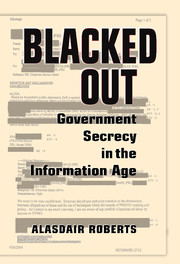1 - The Glass Case
Published online by Cambridge University Press: 05 June 2012
Summary
Hoy todos estamos en una caja de cristal, porque hoy todo se ve, todo se lee y todo se escucha.
– Vicente Fox, President of Mexico, March 2004The village of Kelwara sits in the arid folds of the Aravalli mountains in the southern part of the Indian state of Rajasthan. Above the village are Kumbalgarh Fort, half a millennium old, and luxury hotels for tourists who visit the Fort. The villagers are very poor; the price of a night's stay in one of the hotels, 3000 rupees, is more than many earn in a year. The villagers rely on wheat, sugar, and kerosene that is distributed by the government for sale by local ration dealers at reduced prices. But many ration dealers are corrupt. They falsify their registers to show that they have sold rations to poor villagers and then sell the supplies on the black market.
In January 2004, 400 villagers from Kelwara and neighboring panchayats gathered on a mango-shaded flat below the check dam that gathers Kelwara's water. The jan sunwai – Hindi for public hearing – was organized by an activist group, Mazdoor Kisan Shakti Sangathan (MKSS), which had worked with the poor of southern Rajasthan for fifteen years. The ration dealers were there as well, standing at the edge of the meeting; at the front was a table at which sat the leaders of MKSS, the local magistrate, and visitors from Delhi.
- Type
- Chapter
- Information
- Blacked OutGovernment Secrecy in the Information Age, pp. 1 - 24Publisher: Cambridge University PressPrint publication year: 2006



